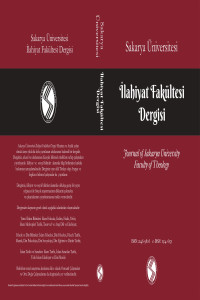Klasik Arap Şiirinde Özhiciv ve Kendini Hicveden Şairler
Self-Satire and Self-Satirizing Poets in Classical Arabic Poetry
Author(s): Mehmet Şirin AladağSubject(s): Language and Literature Studies, Studies of Literature
Published by: Sakarya üniversitesi
Keywords: Arabic Language and Rhetoric; Self-Satire; Classical Arabic Literature; Poetry; Satire; Poets Who Satire Themselves;
Summary/Abstract: The phenomenon of self-satire, one type of satire in Arabic literature, was examined thematically in the present study, where the examples reflecting the culture of self-satire in Arabic poetry and giving clues about the individual and social life of the period were analyzed. After Jahiliyyah, the system based on tribe unity was disintegrated and left its place to individualism together with state formation in Arabic communities. Individuals freed themselves from the vortex of tribal fanaticism and became free, bringing about some transformations in the understanding of satire. Thus, many of the features sought in satire, such as frightening, scolding, and discrediting, making it effective and powerful in society, lost their effect and were replaced by entertainment and humor. In this context, an interesting type of satire, such as pure satire, emerged, and became a practiced style over time, and qualified and rare examples were exhibited in this field. On the other hand, the concepts of self-satire, criticism and humor are different and develop on separate grounds although they are conceptually similar. This study, which traces examples of self-satirization in different periods of Arabic literature, aims to identify and present the precursors of this phenomenon, the factors in its background, and the contexts in which it was used through the analysis of the relevant material. In classical Arabic poetry, poets who directly or indirectly criticize themselves are discussed in chronological order, where everyday examples that do not include self-satirization as an external theme are collected and analyzed. It is noteworthy that these poets were mostly witty, sarcastic and sharptongued, of slave origin, black, and had obvious physical defects. It was also seen that these were poets who went to such extremes in satire that they would satirize their closest relatives, especially their mothers and fathers, and anyone who did them any good. Among these, alHutay’e, who is the most talked about, pioneered the establishment and maturation of pure satire in Arabic literature during his time, making the poet an indisputable representative of this style. However, when it comes to poets satirizing themselves, this article, due to its format volume limitations, tried to keep limited with some of the poetry examples we have identified and present the subject in a more concrete way. Poems written in this context are considered one of the most effective types of satire. Many of them, if directed at others, would create permanent hatred and anger in their addressees and even cause major crises. On the other hand, these examples attract attention with their aesthetic and unique narratives, as well as their humorous and entertaining aspects going beyond satire in terms of their effects on the addressees.
Journal: Sakarya Üniversitesi İlahiyat Fakültesi Dergisi (SAUIFD)
- Issue Year: 26/2024
- Issue No: 50
- Page Range: 623-650
- Page Count: 28
- Language: Turkish

